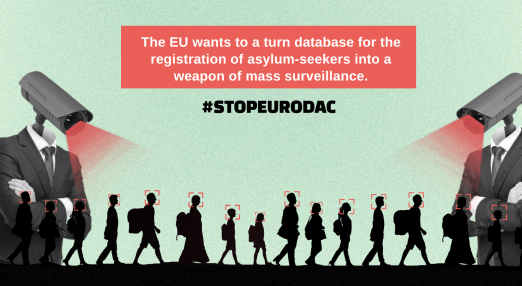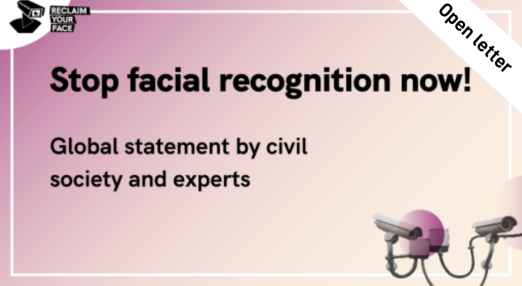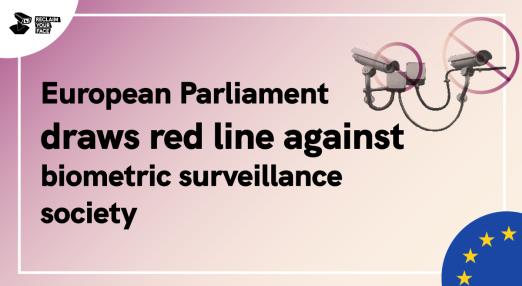Mandatory fingerprints on IDs will be up for re-negotiation
On 21 March 2024, the European Court of Justice ruled the European Union (EU) regulation that enacts fingerprint IDs to be invalid for formal reasons. The principle of mandatory fingerprint collection was declared to be compliant with fundamental rights. However, the court has required a new regulation to be adopted on a different legal basis, opening up opportunities to ultimately overturn the fingerprint obligation.
Filter resources
-

Mandatory fingerprints on IDs will be up for re-negotiation
On 21 March 2024, the European Court of Justice ruled the European Union (EU) regulation that enacts fingerprint IDs to be invalid for formal reasons. The principle of mandatory fingerprint collection was declared to be compliant with fundamental rights. However, the court has required a new regulation to be adopted on a different legal basis, opening up opportunities to ultimately overturn the fingerprint obligation.
Read more
-

EU’s AI Act fails to set gold standard for human rights
A round-up of how the EU Artificial Intelligence (AI) Act fares against the collective demands of a broad civil society coalition that advocated for prioritising the protection of fundamental human rights in the law.
Read more
-

Council to vote on EU AI Act: What’s at stake?
The EU Council is set to vote on the AI Act on 2 February after three years of negotiation on this legislation. Our civil society AI coalition summarises the latest updates, what is at stake, and civil society's views on the AI Act.
Read more
-

EU AI Act: Deal reached, but too soon to celebrate
On 8 December 2023, following over 36 hours of negotiations, EU lawmakers finally cinched a deal on the Artificial Intelligence Act. However, whilst some fundamental rights protections have been won, the overall Act has not lived up to its potential to put people and their rights front and center.
Read more
-

NGOs and experts warn AI Act negotiators: don’t trade our rights!
On 8 December 2023, 70 civil society groups and 34 expert individuals sent an urgent letter to the Council of EU Member States, the European Commission and the European Parliament to urge them "Do not trade away our rights!" in the final trilogue (negotiation) on the landmark Artificial Intelligence (AI) Act.
Read more
-

Civil society calls for an end to the expansion of EU’s EURODAC database
Civil society is calling for an end to the expansion of EURODAC, the EU database for the registration of asylum-seekers. EURODAC is being transformed into an expansive, violent surveillance tool that will treat people seeking protection as crime suspects.
Read more
-

Civil society statement: Council risks failing human rights in the AI Act
In the run up to EU AI Act trilogue negotiation, 16 civil society organisations are urging representatives of the Council of the European Union to effectively regulate the use of AI systems by law enforcement, migration control and national security authorities in the legislation.
Read more
-

Czech police use facial recognition system, IuRe finds out details
EDRi member Iuridicum Remedium have details on the Czech police’s illegal use of a facial recognition system. The country’s data protection authorities were not consulted in advance on the system, which is being used for biometric identification
Read more
-

Global civil society and experts statement: Stop facial recognition surveillance now
198 civil society groups and eminent experts are calling on governments to stop the use of facial recognition surveillance by police, authorities and private companies.
Read more
-

EU lawmakers must regulate the harmful use of tech by law enforcement in the AI Act
115 civil society organisations are calling on EU lawmakers to to regulate the use of AI technology for harmful and discriminatory surveillance by law enforcement, migration authorities and national security forces in the AI Act.
Read more
-

European Parliament draws red line against biometric surveillance society
On Wednesday 14 June 2023, the European Parliament voted to ban most public mass surveillance uses of biometric systems. This is the biggest achievement to date for the eighty organisations and quarter of a million people who have supported the Reclaim Your Face campaign's demand to end biometric mass surveillance (BMS) in Europe.
Read more
-

EU Parliament calls for ban of public facial recognition, but leaves human rights gaps in final position on AI Act
The final EU Parliament position upholds all of the fundamental rights demands which were added at committee level. Despite efforts to overturn it, the final position also maintains the committees' strong stance against biometric mass surveillance practices. But it is disappointing that the plenary missed the opportunity to increase protections when it comes to empowering people affected by the use of AI and the rights of migrants, refugees and asylum seekers.
Read more
